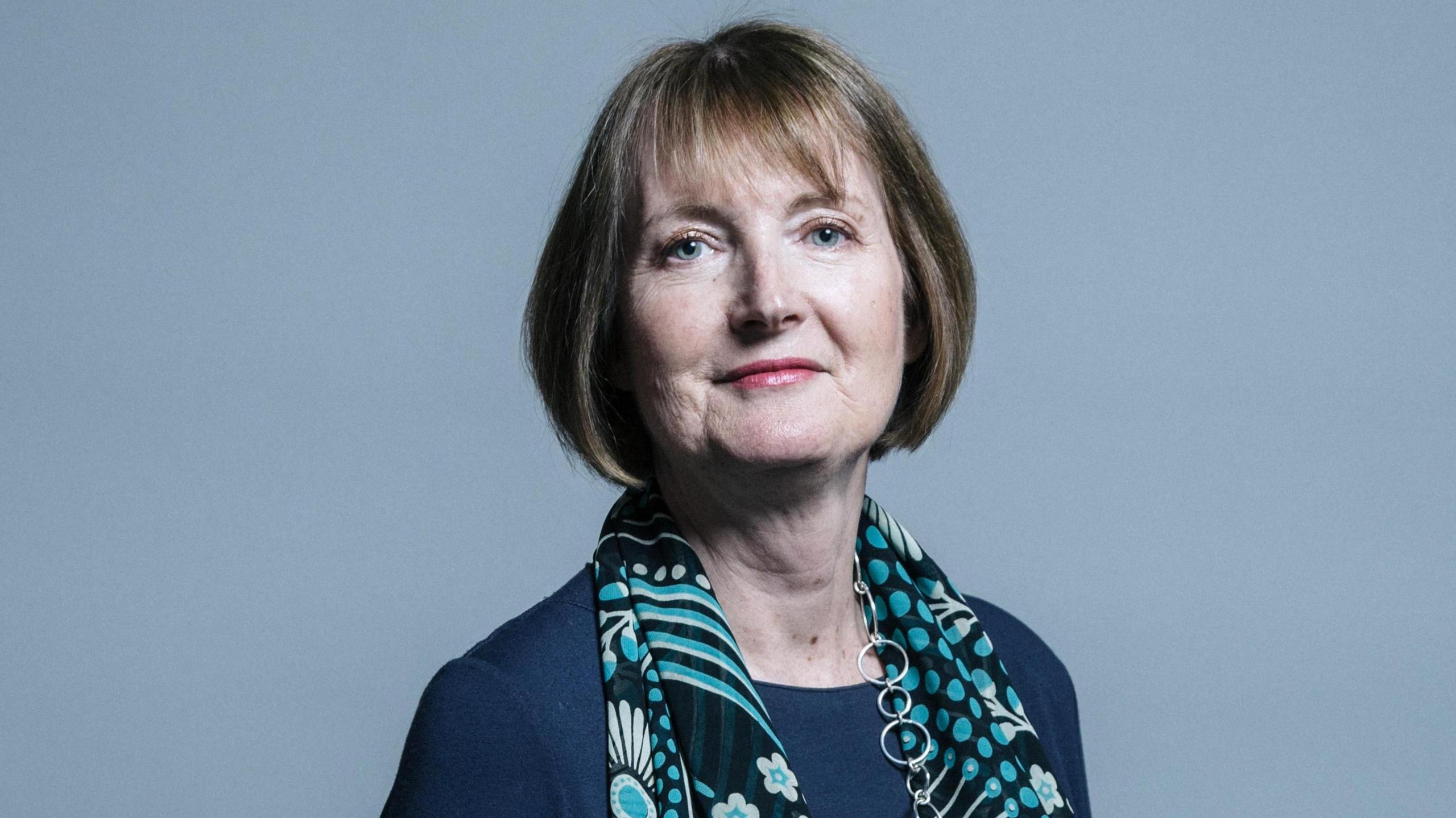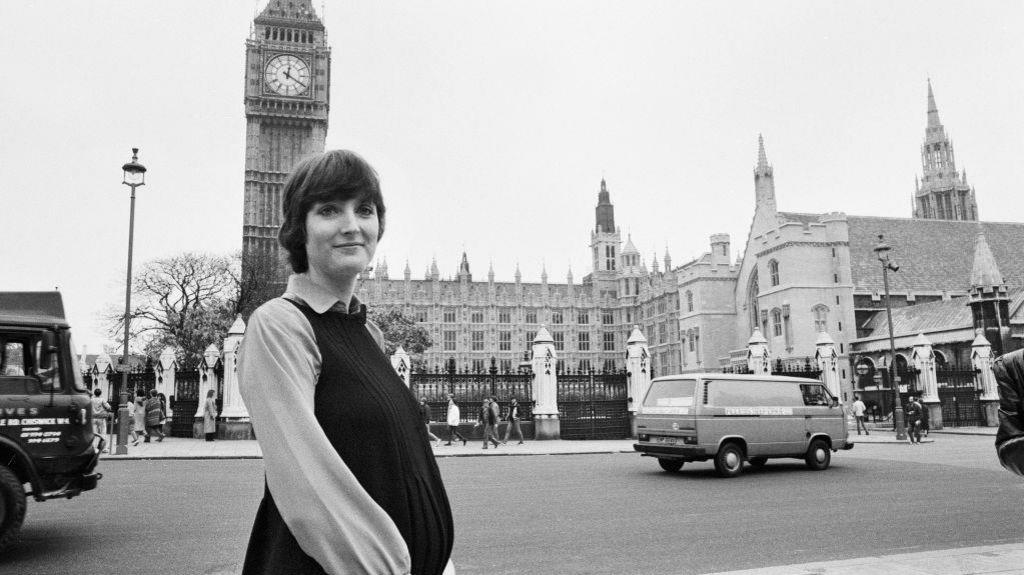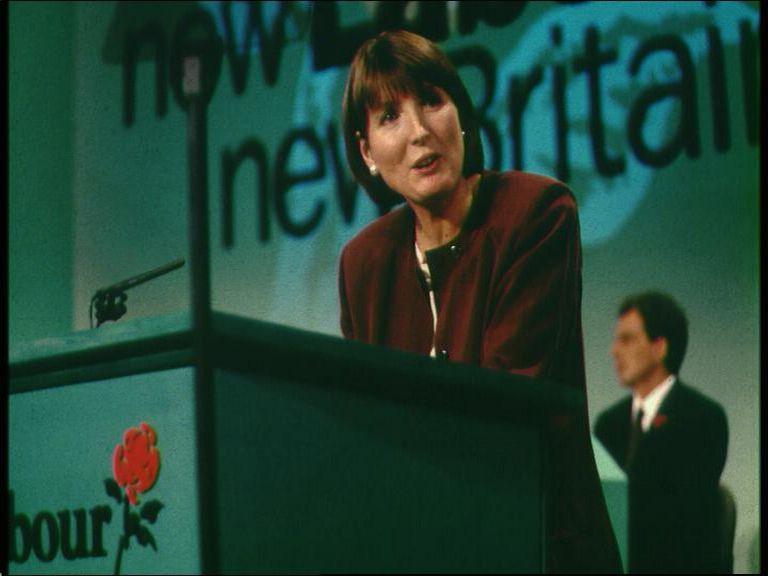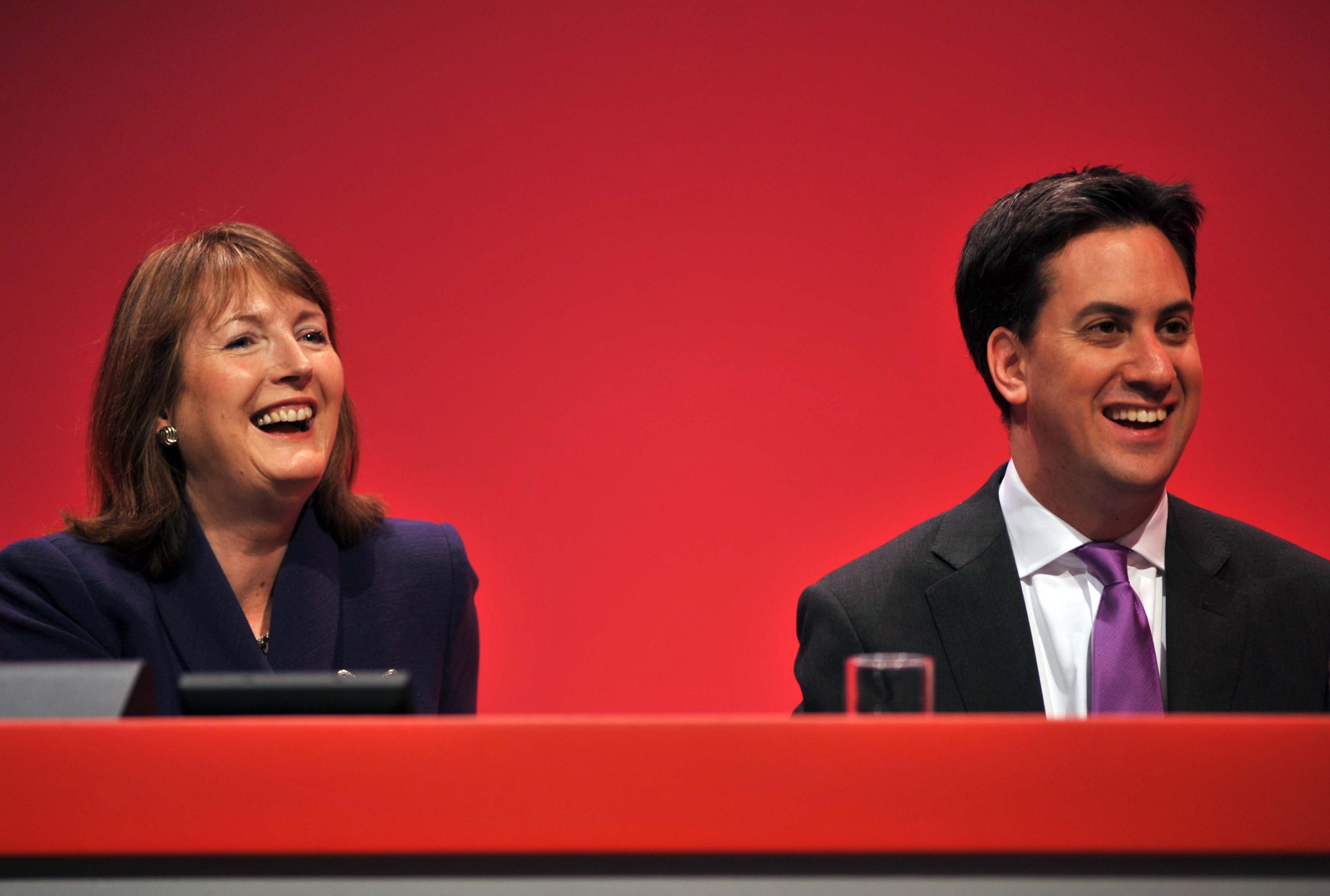Harriet Harman: 'I was a fish out of water'

Harriet Harman is stepping down after more than four decades as an MP
- Published
With Prime Minister Rishi Sunak firing the starting gun on the general election, the House of Commons will soon say goodbye to many familiar faces.
Few are more so than south London MP Harriet Harman, who will bid farewell to the green benches after more than 41 years when Parliament is dissolved this week.
The "soon-to-be-former Labour MP for Camberwell and Peckham", as she labelled herself on BBC Radio London, was first elected in an October 1982 by-election.
The 74-year-old has outlasted many of the politicians who have shared the benches with her and, as the UK's longest continuously serving female MP, has the title of Mother of the House.
Ms Harman is joined by other veteran female MPs who are standing down, including Dame Margaret Hodge and Dame Margaret Beckett, who can boast the longest overall service of any woman in Commons history.
Mother of the House is a fitting title for Ms Harman, considering women’s issues are something she has campaigned on all her political career, and long before, which she said was not always welcome in the early 1980s.
She told the BBC’s Political Thinking podcast in 2019: “There was only 3% women in those days and 97% men. You can imagine that. It really was a sort of men-only activity.
“I was also very young. I was 32 when the average age of MPs was towards the 60s, and I was pregnant as well. I was a fish out of water.”

Harriet Harman entered Parliament at a time when women held 3% of seats
The south London MP said she made it her mission to elevate more women to positions of power in Parliament and within her party with initiatives such as all-women shortlists.
The initiative has been credited with helping to raise the proportion of female MPs within the party to 45%, according to the Labour Women’s Network.
The early days in elected politics were “really hard”, Ms Harman told Nick Robinson’s podcast.
“I would be called a stupid cow from across the chamber,” she said. “People would constantly in the media describe my colleagues as saying I was thick.”

Ms Harman rose to high office during Tony Blair's time as prime minister
Ms Harman rose through the Labour ranks to occupy various shadow ministerial posts until the party's 1997 landslide victory under Tony Blair.
She was appointed secretary of state for social security, along with the newly created post of minister for women.
Ms Harman went on to hold various roles during Labour’s 13 years in power, including solicitor general, leader of the House of Commons and deputy leader of her party, and she championed many causes.
“When I look back on my ministerial career, I think of being able to change the law on domestic violence, I think of being able to bring in the Equality Act,” she said.
Harman 'regrets' group's Paedophile Information Exchange links
- Published26 February 2014
Labour MP Harman to stand down at next election
- Published7 December 2021
Ms Harman admitted there were “loads of cock-ups” during her career. She came under fire in December 1997 over cuts to lone-parent benefits and was sacked as social security secretary the following July. She would not return to the cabinet for a decade.
In 2007, Ms Harman also faced criticism over a £5,000 donation that turned out to have come from a property developer under someone else's name. She returned the money.

Harriet Harman served as Labour's deputy leader under Ed Miliband and his predecessor Gordon Brown
Reflecting on her time in politics, she told BBC Radio London it remained “disappointing and embarrassing” that Labour has never had a woman as leader, “let alone a prime minister”. (Although Ms Harman twice briefly headed the party until a successor was chosen to Gordon Brown and Ed Miliband following the general elections of 2010 and 2015.)
“It’s a new world," Ms Harman said of the Britain of 2024. "There is a whole set of new issues, and a new Parliament and a new government needs to be looking to the future, not doing things in a way that is pre the internet and pre just about everything.”
A new world means different challenges, she said, including a more vitriolic public discourse.
“One of the things I’m concerned about in this election is that we have to absolutely make sure what we expect from all the political parties: standards of civility and that we don’t drop to personal abuse and misogyny because that then radiates into every community and every home.”
Asked why she was not staying on in frontline politics to continue her work on women’s issues, Ms Harman described the current and upcoming generation of women in politics as “every bit and more than capable of doing it themselves”.
Ms Harman added that she would be “enthusiastically cheering them on” in continuing the work that has helped to define her long career.
Listen to the best of BBC Radio London on Sounds and follow BBC London on Facebook, external, X, external and Instagram, external. Send your story ideas to hello.bbclondon@bbc.co.uk, external